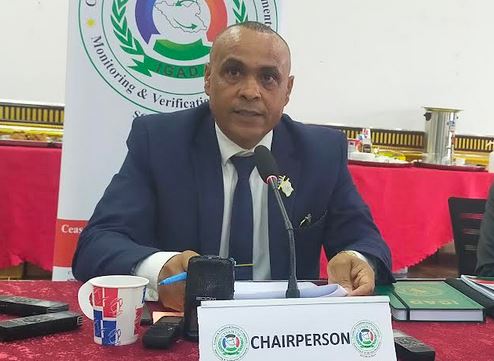The Ceasefire Transitional Security Arrangements Monitoring and Verification Mechanism (CITSAMVM) has welcomed the decision taken by the parties signatories to the peace agreement to extend the transitional period by two years.
Speaking during the Mechanisms plenary meeting in Juba on Friday, CTSAMVM Chairperson Maj Gen Yitayal Gelaw Bitew commended the parties for reaching a consensus.
“As you know, the Transitional Government has taken the necessary steps to extend the transitional period by two years. CTSAMVM welcomes the consensus that made the decision possible,” he said.
The peace monitoring body said this extended transitional period can help the parties to implement some pending critical tasks in the peace agreement.
“This will afford additional time to complete the implementation of the transitional security arrangements which in turn will set the conditions for hosting a stable electoral process,” he stated but cautiously added: “However, the practical implications of our continued operational presence remain unknown.”
While CTSAMVM welcomed the extension, it noted that lack of funds can still affect the implementation process. Gen. Gelaw stressed that this was seen when it largely affected the security sector especially the training and graduation of forces.
“During the last CTSAMVM Board Meeting, I highlighted the increasingly competitive demand for donor funding and the budgetary constraints across the multiple security mechanisms underpinning the R-ARCSS,” he underlined. “Those same concerns remain, and securing additional donor funding to ensure continued monitoring and verification activity will be challenging.”
This comes as the high-level committee in charge of implementing the peace agreement revealed that they require USD 433 million to conduct General Elections in December 2026.
“CTSAMVM will explore all options that maintain our ability to deliver our mandate,” Gen. Gelaw concluded. “However, we must be pragmatic and prepare for the possibility that adjusting our operational model within resource constraints may be necessary.”




